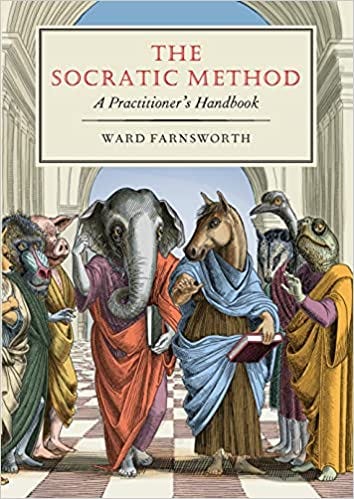Welcome to our weekend edition, a combination of the world, profiles, and good reads that you might not see during the week.
Subscriber benefit (today, 3 pm ET): What Happens Next, an extraordinary, invitation-only weekly call with academics and experts across economics, industry, medicine, history, literature, and more.
Today’s speakers include:
Ari Ciment, Pulmonologist and Critical Care at Mt. Sinai Hospital in Miami Beach: Omicron — What is Happening in the Hospital’s COVID wards, treatment options, and what to expect
David Kronfeld, Venture Capitalist, former Booz Allen consultant, and Ameritech executive: How to apply insightful methods to advance your career and improve your negotiation skills
Listen & Register: Newsletter subscribers can listen to today’s call here.
The World
U.S. airlines scrapped nearly 1,000 flights yesterday, the second straight day of massive cancellations as surging COVID-19 infections have sidelined some pilots and other crew members, upending plans for tens of thousands of holiday travelers over the Christmas weekend. A total of 957 Christmas Day flights, including domestic flights and those into or out of the country, were canceled, up from 690 on Christmas Eve. Nearly 2,000 flights were delayed. At least one airline said that it expects hundreds more cancellations today. (Reuters)
A Navy combat ship deployed to intercept drug trafficking in the Caribbean and East Pacific is stuck in the port at Guantánamo Bay, Cuba, with a coronavirus outbreak among its fully vaccinated crew. Only some of those infected onboard the ship, the U.S.S. Milwaukee, were experiencing mild symptoms, said Commander Kate Meadows, a Navy spokeswoman. (New York Times)
UK Prime Minister Boris Johnson has vowed to keep schools open in January despite soaring numbers of Covid cases, raising fears about the impact the decision may have on the NHS. (The Times)
More than 10,000 Russian troops have been returning to their permanent bases after month-long drills near Ukraine. The Interfax news agency said the drills were held in several regions near Ukraine, including in Crimea, which Russia annexed in 2014, as well as in the southern Russian regions of Rostov and Kuban. (Reuters)
Desmond Tutu, South Africa’s Nobel Peace Prize-winning activist for racial justice and LGBT rights and retired Anglican Archbishop of Cape Town, has died, South African President Cyril Ramaphosa announced Sunday. He was 90. An uncompromising foe of apartheid, South Africa’s brutal regime of oppression again the Black majority, Tutu worked tirelessly, though non-violently, for its downfall. (Associated Press)
NASA's James Webb Space Telescope launched at 7:20 a.m. EST yesterday on an Ariane 5 rocket from Europe's Spaceport in French Guiana, South America. A joint effort with ESA (European Space Agency) and the Canadian Space Agency, the Webb observatory is NASA's revolutionary flagship mission to seek the light from the first galaxies in the early universe and to explore our own solar system, as well as planets orbiting other stars, called exoplanets. "The James Webb Space Telescope represents the ambition that NASA and our partners maintain to propel us forward into the future," said NASA Administrator Bill Nelson. "The promise of Webb is not what we know we will discover; it's what we don't yet understand or can't yet fathom about our universe. I can't wait to see what it uncovers!" (NASA)

Profiles & Reads
Alex Haley Taught America About Race — and a Young Man How to Write: In 1968, the celebrated author of “The Autobiography of Malcolm X” arrived at Hamilton College to teach and work on his magnum opus, “Roots.” Now, on the centenary of his birth, a former student recalls Haley’s class. In 1959, long before his books “The Autobiography of Malcolm X” and “Roots” made him famous, an aspiring writer named Alex Haley, fresh out of the Coast Guard, wrote to six prominent Black writers in Greenwich Village for pointers on how to break into publishing. Only James Baldwin replied, showing up at Haley’s place unannounced one afternoon and chatting with him. Haley was eternally grateful for such generous encouragement from the distinguished author. Alex Haley, whose centenary we mark this year, was my James Baldwin. When I entered Hamilton College in the fall of 1968, I was determined to be a writer, so I signed up for Haley’s writing course, not knowing what to expect. I was already familiar with “The Autobiography of Malcolm X,” his collaboration with the Black leader, which had become an instant best seller when it was published three years earlier; my sister had read it at Skidmore College and wrote to me about how powerful it was. (She signed her letter “Cindy X.”) The book blew me away, just as Ralph Ellison’s “Invisible Man” and Eldridge Cleaver’s “Soul on Ice” did later. Attending Haley’s class allowed me to observe him in action for nearly a year while he was working on his magnum opus, “Roots.” (New York Times)


Their families fled Vietnam. Now they’re helping Afghan refugees in America. Thuy Do couldn’t look away from the devastating clip playing on a loop on television news — hundreds of Afghans running alongside a massive U.S. Air Force cargo plane, desperately trying to flee their home country. The frantic frowns felt so familiar, reminding her of images of refugees packed onto helicopters to escape Vietnam more than four decades earlier. So during the summer, Do, a doctor in her late 30s whose family left Vietnam when she was a girl and resettled in Seattle, sat down in her living room with her husband and talked about how they could help. “We just knew we had to do something,” she said, reflecting on the initial shock of the Taliban takeover of Afghanistan in August. “This is a time for us to give back.” (Los Angeles Times)


A computational biologist weighs in on Omicron, the future of vaccines, and the CDC’s variant forecast: What do the data so far tell us about Omicron and whether it causes milder disease than previous Covid-19 variants? What can we expect to see as Omicron infections crash up against the country’s health care system? Why do Omicron waves seem to decline so quickly after scaling such heights? We don’t know. So we asked Trevor Bedford, a computational biologist at the Fred Hutchinson Cancer Research Center in Seattle, for his thoughts… The bad news is that because Omicron’s mutations allow it to slip past antibodies people have acquired over the past two years, he thinks potentially half the globe may contract Omicron over the coming weeks and months. How concerned is Bedford about Omicron? He said he uses a “freaking out” scale of 1 to 10 to rate pandemic developments. The Delta variant was a 6. He’s still not sure how bad Omicron is, saying at this point it falls somewhere between 3 and 8. (STAT News)


The migrants braving a treacherous Alpine journey to reach France: Record numbers have attempted the mountainous route from the Italian border this year. By day the snow-clad hills around the Italian town of Claviere on the French border are a playground for skiers. By night they become a perilous Alpine passage for growing numbers of clandestine migrants trying to reach France through the Montgenèvre pass. “Mountains, in the snow, in rain, sun . . . no matter. We don’t have any choice,” said Maryam Bodaghi, a 23-year-old civil engineer from Iran, who was attempting the journey through the Alps with her husband Milad Zanghi, a Christian who Bodaghi said faced persecution at home. “We had to leave because the government is harsh for us. They want to kill my husband.” Like many of the migrants using this route, she and her husband are headed for Calais because they intend to cross the Channel and reach the UK. But first they must cross the French border. This means walking for about 15km through knee-high snow as temperatures drop to minus 10C, while hiding from the French police and watching out for avalanches. Accidents have led to amputations from severe frostbite or death by hypothermia, according to NGOs. (Financial Times)


Michael Pollan writes: The invisible addiction — is it time to give up caffeine? Caffeine makes us more energetic, efficient and faster. But we have become so dependent that we need it just to get to our baseline. After years of starting the day with a tall morning coffee, followed by several glasses of green tea at intervals, and the occasional cappuccino after lunch, I quit caffeine, cold turkey. It was not something that I particularly wanted to do, but I had come to the reluctant conclusion that the story I was writing demanded it. Several of the experts I was interviewing had suggested that I really couldn’t understand the role of caffeine in my life – its invisible yet pervasive power – without getting off it and then, presumably, getting back on. Roland Griffiths, one of the world’s leading researchers of mood-altering drugs, and the man most responsible for getting the diagnosis of “caffeine withdrawal” included in the Diagnostic and Statistical Manual of Mental Disorders (DSM-5), the bible of psychiatric diagnoses, told me he hadn’t begun to understand his own relationship with caffeine until he stopped using it and conducted a series of self-experiments. He urged me to do the same. (The Guardian)
Listen, Watch, Read: Friends of CRN Edition
During this time where we all consider how fortunate we are for friends and family, I wanted to let you know about some projects that friends of mine have recently produced:
Watch: I’ve known Michael Silver since college. 21 years ago, he co-wrote “All Things Possible,” with Super Bowl champion and future Hall of Fame quarterback Kurt Warner. This weekend, that book was released as a movie: American Underdog. Variety writes: “‘American Underdog’ Review: Old-Fashioned Sports Biopic Hits the Sweet Spot as Family-Friendly Entertainment.” The movie is currently in theaters. (American Underdog)
Listen or Read: I’ve known Ward Farnsworth since high school. His most recent book was released in October: “The Socratic Method: A Practitioner’s Handbook.” About the book: “The Socratic method is one of the timeless inventions of the ancient world. It is a path to wisdom and a way to think more intelligently about questions large or small. It is an antidote to stupidity, to irrationality, and to social media. This book explains the Socratic method in detail: what it is, where it came from, and how to carry it out. The chapters teach the elements of the method step by step. They illustrate how to create Socratic questions of your own. They show how the teachings of Socrates produced the philosophies of Stoicism and Skepticism. The book also explains how the Socratic method can be put to work in the classroom, and it offers Socratic rules of engagement for talking about politics and other hard things. The Socratic Method is a complete guide to the practical use of a great idea.” It’s also available in audiobook format. (The Socratic Method)
Good News
A UPS driver left a kind holiday message for a family. They put it on Instagram, and strangers showered the driver’s baby with gifts. (Washington Post)


Mariah Carey’s "All I Want for Christmas Is You" is once again at the top of the Christmas hits list, racking up more than 30 million streams in the week ending December 9 — and that's just on Spotify. With every year that passes “AIWFCIY” seems to get a stronger claim to "biggest Christmas song of all time," growing along with the rise of streaming platforms. But why is the song so persistently popular? A musicologist offered their thoughts a few years ago, citing the chord progression, the emotional hook at the start and the suspense that builds into the final verse. (Chartr)
Have a great Sunday! How about a gift for yourself:






